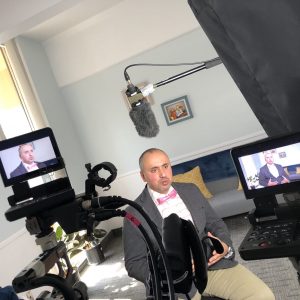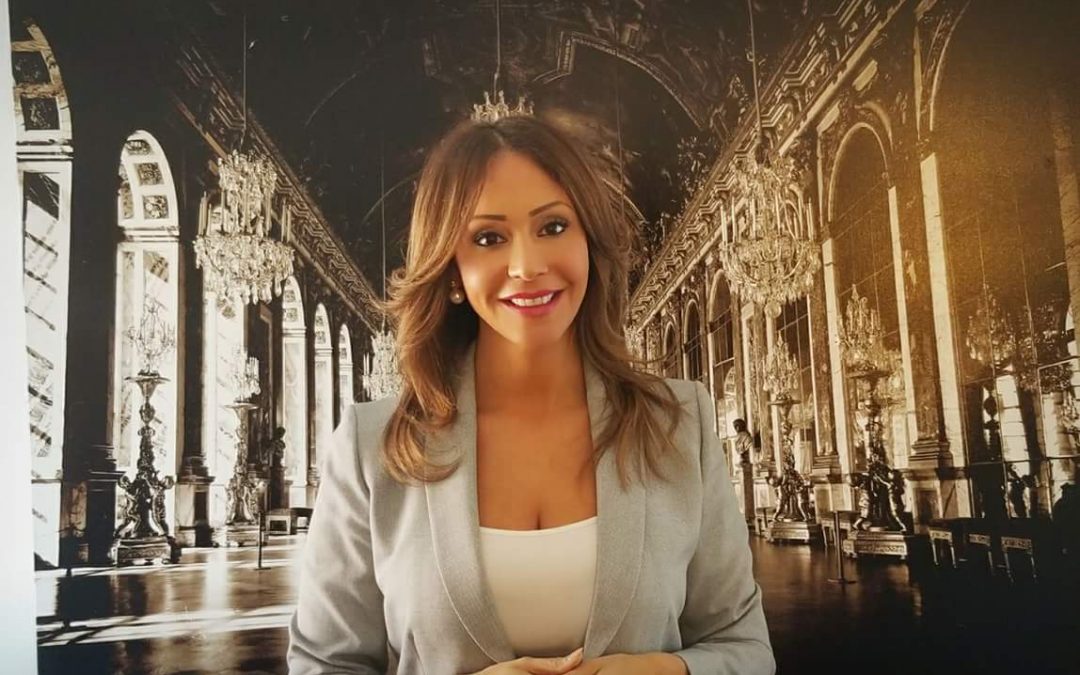DEARBORN, Mich. — Mental health professionals in Dearborn are concerned that citizens are ignoring their mental health during the pandemic. They are recommending coping techniques for the public to deal with ‘social distancing’ and isolation measures, which may help slow down the spread of COVID-19, but also can cause mental anguish.
Nancy Jaafar (pictured above), a licensed psychologist who specializes in hypnotherapy at her clinic here in Dearborn, Evolution Hypnotherapy Services, said she’s concerned about the way people are repeatedly watching the same alarming news coverage on the television over and over, “While I understand the need to be informed, you don’t need to be inundated. When you read things over and over, it bypasses the rational mind and goes into your unconscious mind, which is where people get into fears like death, illness, and all of these thoughts about how the government is failing them and how there’s shortage.”
Jaafar explained that the medium of television, in particular, created unique problems for mental health during this kind of crisis, “When people are watching TV news all the time, their subconscious mind is constantly in the state of ‘fight or flight.’ Humans have a natural mechanism for fight or flight – because when we sense danger, whether real or perceived, we get a ‘fight or flight’ response. The ‘fight or flight’ response basically causes blood flow to move away from your brain and vital organs to your arms and extremities, which we need to fight. When that happens, our immune system shuts down and we become more susceptible to illness. This kind of anxiety creates a self-fulfilling process of illness.”

Dr. Shady Shebak speaks at his clinic, CorePsych PLLC in Dearborn. (Photo by CorePysch PLLC)
Dr. Shady Shebak, a psychiatrist at Core Psych PLLC in Dearborn, and the Vice President of the American Muslim Health Professionals association, said that he’s switched to tele-medecine to accommodate social distancing measures, but that people still need to engage in self-care.
“Self-care entails deliberate actions taken for promoting our individual mental, emotional and physical health. It is [the] key to improved mood and anxiety,” said Shebak, who listed a number of steps people could take to care for their mental health. “Do not isolate – get in touch with someone you trust. Get in touch with a friend by phone, social media or video chat. Go for a walk and connect with nature. Exercise. Manage your worries. Write a journal or process your feelings. Try practicing yoga, meditation, breathing exercises, aromatherapy. Practice arts and crafts – make something.”
Jaafar said that people need to understand that it’s not a question of focusing on mental or physical health, but that both are connected, “What I keep emphasizing is, turn off the news, go watch something light. Enjoy yourself. It almost may appear as if you’re not taking it too seriously, but when you’re relaxed, your body is in rest and repair, and then you’re better able to fight off infection and disease. This is no longer a topic of mental health and physical health: they’re intertwined. It’s about overall health.”
Jaafar laid out a variety of steps people can take to care for their mental health, “I encourage people who do know how to meditate, to do it on a regular basis. For people who are naturally anxious, it can be difficult, but listening to something like music, burning a candle and watching it, or something relaxing, can be good. I think music can be an amazing tool. Staying connected – group chats, sending light-hearted memes can be good. And I just downloaded zoom – I’m meeting with clients and talking with them on there. When people are focused on the dread and fear – change the subject. Focus on something else. We need social connection.”
Jaafar said she’s even had to get family members to change their media watching behavior, “I made my mom switch to the game show network.”
Jaafar plans to offer certain free services online in the future, “Like a group hypnosis on YouTube that can help more people during this crisis…My goal is to provide something on a bigger scale,” Jaafar said that she continues to provide service to her clients, “I have to keep going, because my sessions are my client’s safe haven.”
To follow Yemeni American News’ continuing coverage of the COVID-19 pandemic, go to https://www.yemeniamerican.com/covid-19


Buy generic medicines online…
Stress and anxiety, for example, can have an impact on how your brain transmits your body’s physical response. Stress and anxiety can interfere with how your brain sends messages to the penis to allow extra blood flow during an erection. use Cenforce 100 or Fildena 100 to last longer in bed.
buy fildena 100 mg is a safe and affordable alternative to dangerous erectile dysfunction drugs. The generic Viagra is just as effective as the original Viagra but much cheaper. Fildena 100mg can be ordered online from our Internet pharmacy. Enjoy perfect sex once again, without having to overpay or risk your health.